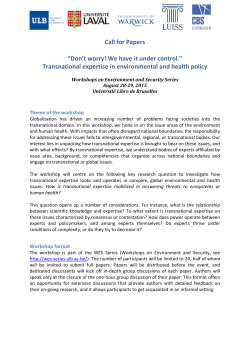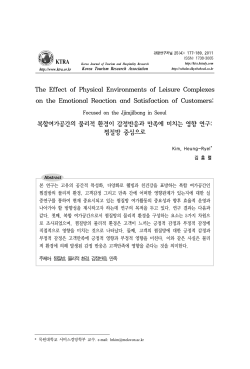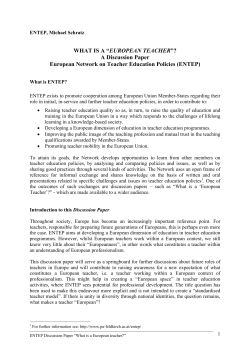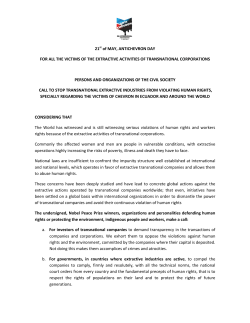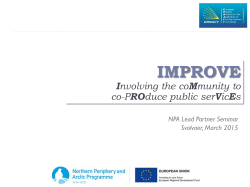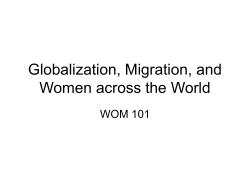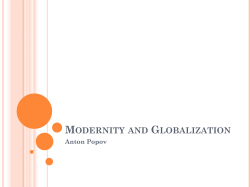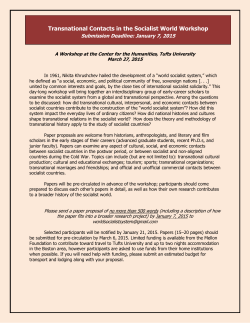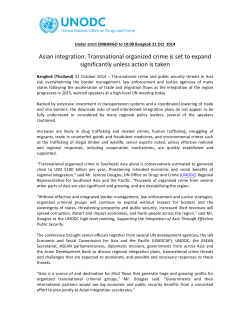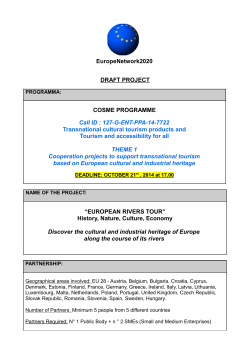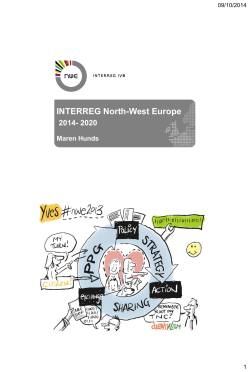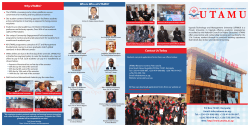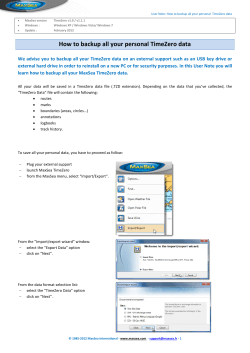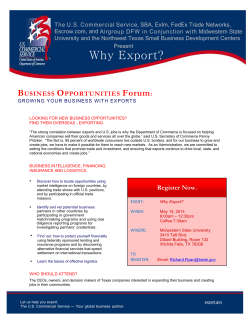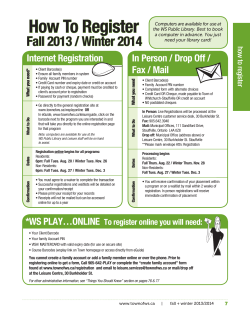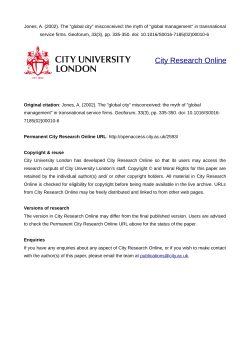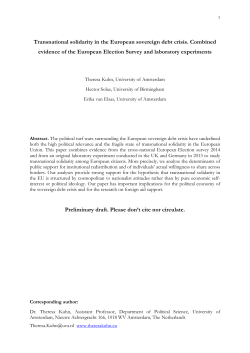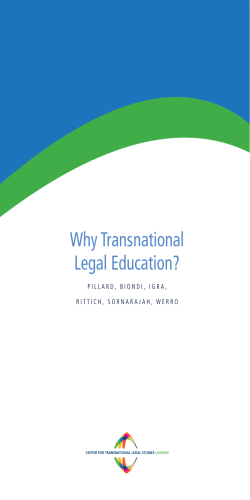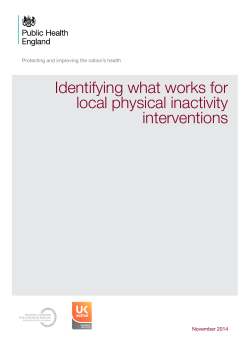
Internationalization @ IMC University of Applied Sciences Krems -krems.ac.at/de/international/
Internationalization @ IMC University of Applied Sciences Krems
http://www.fh-krems.ac.at/de/international/
Prof.(FH) Dr. Maximilian Schachner
Basic Facts & Figures
Foundation:
1994
Legal Status:
Limited Company
Public Private Partnership
Managing Directors:
Dr. h.c. Mag. Heinz Boyer
Mag.a Ulrike Prommer
Rector:
Prof. (FH) Mag.a Eva Werner
Vice-Rector:
Prof. (FH) Dr. Karl C. Ennsfellner
2
Guiding Principles
VISION
It is our vision, as an internationally
recognized university, to develop
innovative solutions in the areas of
our core competences.
3
Guiding Principles
We are an Austrian university with an
international focus.
We offer practice-oriented degree programmes
according to the needs of the industry which
fulfil international university standards,
thereby ensuring that our students are fully
qualified to assume positions of responsibility
in the industry and society.
4
Accreditation
5
Student Numbers
6
Our Fields
Department of Business
Export-Oriented Management
International Business and Export Management
Tourism & Leisure Management
Business Administration & E-Business
Management
Health Management
Management
Management of Health Institutions
Marketing & Sales
Environmental and Sustainability Management
Management of SME
7
Our Fields
Department of Health
Physiotherapy
Midwifery
Advanced Nursing Practice
General Nursing
Music Therapy
Occupational Therapy
8
Our Fields
Department of
Life Science
Medical & Pharmaceutical
Biotechnology
9
Internationalisation
Academic mobility programmes
http://www.fh-krems.ac.at/en/international/incoming-outgoing-academicmobility/
Student Mobility (Incoming & Outgoing)
Teaching Staff Mobility
Staff Mobility
Transnational programmes & projects
http://www.fh-krems.ac.at/en/international/transnational-programmes-andprojects/
Exporting Educational Know-How
10
Internationalisation
40 % of our programmes is
conducted in English
7 foreign languages offered
Over 100 partner universities in 50
countries
150 outgoing students and 150
incoming students per academic year
790 internships per year
10 Transnational Programmes based
on IMC’s curricula
11
Transnational Programmes & Projects
Research and development
in connection with
all degree programmes
12
Transnational Education
13
Educational Export - China
Qingdao
Transnational Bachelor Programme in
Tourism and Leisure Management
14
Educational Export - Vietnam
Hue
Transnational Bachelor/Master
Programme in Tourism and
Leisure Management
Hanoi
Transnational Master Programme
in Business Administration
(part-time)
15
Educational Export, Azerbaijan
Baku
Bachelor Programme in Tourism and
Leisure Management
Master Programme in Tourism
and Leisure Management
Starting Fall 2012
16
More Educational Export
Belgrade, Serbia
Transnational Bachelor Programme in
Tourism and Leisure Management.
(starting Fall 2012)
Kiev, Ukraine
Transnational Bachelor/Master
Programme in Export-Oriented
Management
17
Inter-Cultural Communication in Practice
Concepts, Challenges & Useful Hints
Prof.(FH) Dr. Maximilian Schachner
Inter-Cultural Communication
www.respect.at
Aspects of inter-cultural communication
•
•
•
•
•
•
Management styles
Clichés & stereotypes
Time perception
Space perception
Human interaction
Language(s)
Management Styles
Aspects of inter-cultural communication
• Clichés & stereotypes
– «national» characteristics
– countries & their images
Aspects of inter-cultural communication
• Time perception
– «physical» time: punctuality
– «meta-physical» time:
religion («life & death & eternity»)
– seasonality: four distinct seasons or
« permanent » sunshine
– work & leisure time
Aspects of inter-cultural communication
• Space perception
– «physical» space: urban & rural
(mobility, long distances – US, Russia, China)
– «personal» space: intimacy & body contact
– «social» space: (individual) freedom & rights
Aspects of inter-cultural communication
• Human Interaction ("sociability")
– High vs. low context cultures
– High vs. low face-saving cultures
– Individualism & hierarchies
–
http://www.slideshare.net/Fred09/doing-business-in-japan-communicating-with-thejapanese?from=email&type=share_slideshow&subtype=slideshow
Aspects of inter-cultural communication
• Language(s)
– Rules (grammar, syntax)
– Dialects (regional differences)
– «Sociolects» & jargon
Social & professional differences
Thank you for your attention and
all the best for your own
international projects!
For further information:
www.fh-krems.ac.at
Tel.: +43 (0)2732-802-0
Email: office@fh-krems.ac.at
36
© Copyright 2025
